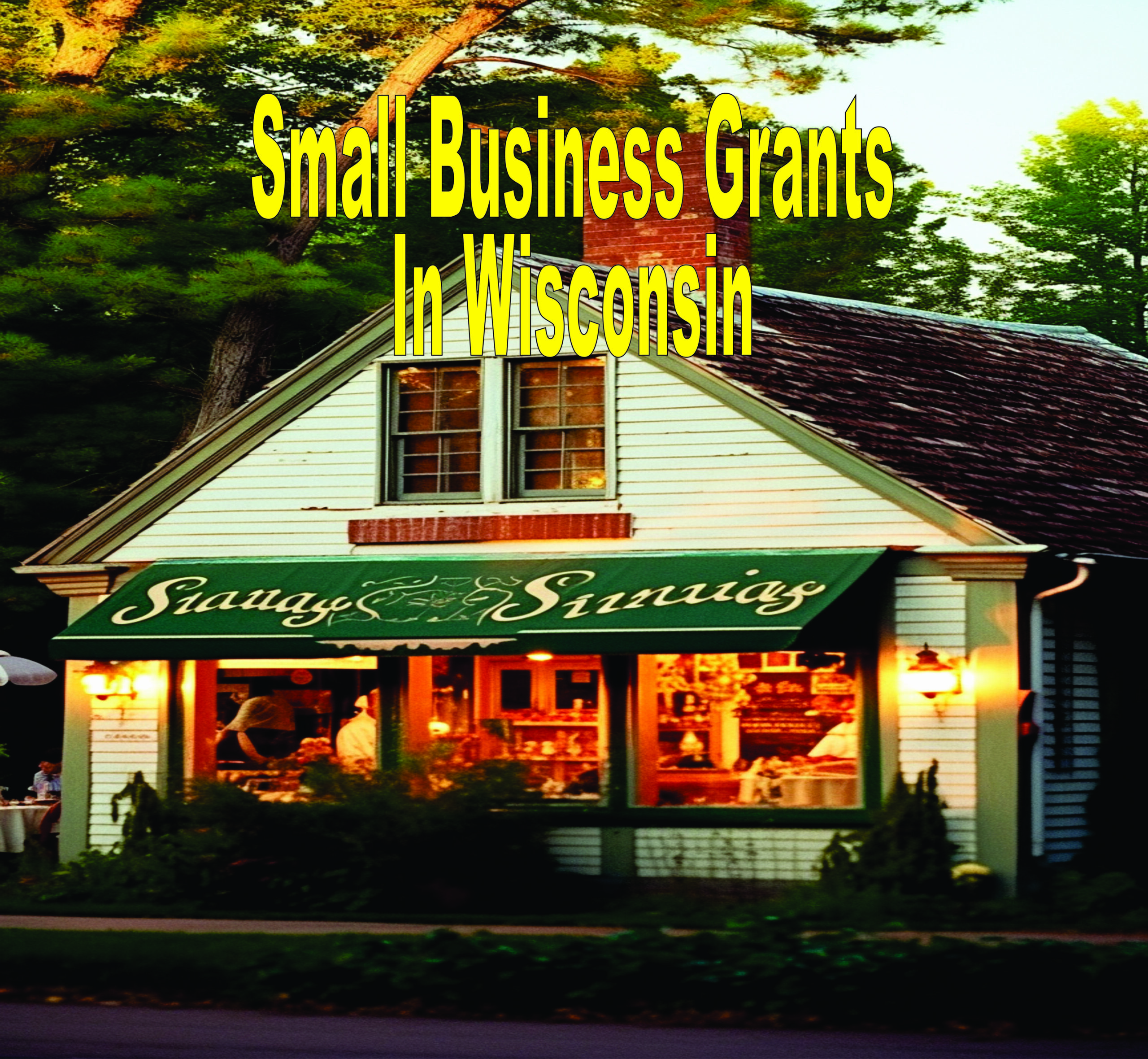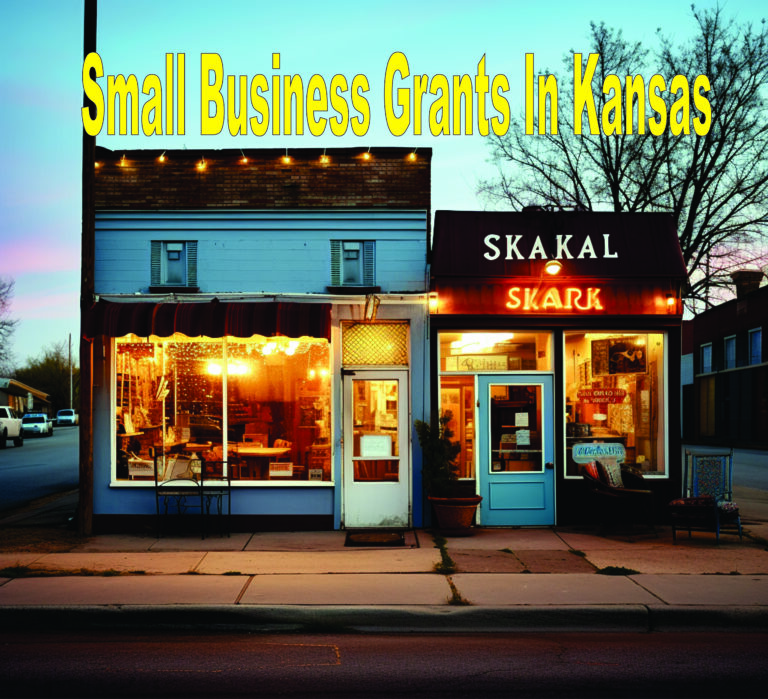Small Business Grants In Wisconsin

Last Updated on May 22, 2024 by Kathy
Are you a small business owner in Wisconsin looking for financial assistance to grow and develop your business?
Look no further! Wisconsin offers a variety of grant programs that can provide the support you need. These grants, offered by government agencies, private foundations, and nonprofit organizations, offer financial assistance and opportunities for networking, support services, and credibility enhancement.
However, it’s important to note that obtaining these grants requires careful research, preparation, and adherence to guidelines.
In this article, we will explore the different grant programs available in Wisconsin, their eligibility requirements, application processes, and allowable uses for the grant funds. We will also highlight the importance of having a solid business plan and provide additional resources for small business owners seeking grant opportunities.
So, let’s dive in and discover the world of small business grants in Wisconsin!
Wisconsin Economic Development Corporation (WEDC) Grants
The Wisconsin Economic Development Corporation, or WEDC, offers a variety of grant funding options for job creation, business expansion, and access to capital. One of the significant grants under WEDC is the Small Business Development Grant. This grant is intended to help local businesses and organizations in Wisconsin grow, develop, and contribute to the state’s overall economic well-being.
Whether you’re a start-up or an existing business, these state-funded small business grants can provide the financial assistance and guidance you need to achieve your business growth objectives.
With WEDC grants, you’ll access various resources and support to enhance your business management skills and drive economic growth in Wisconsin.
Wisconsin Fast Forward (WFF) Grant
Get ready to supercharge your workforce and propel your business to new heights with the Wisconsin Fast Forward Grant! This grant program, offered by the Wisconsin Department of Workforce Development, aims to assist Wisconsin business development and job creation.
With a wide range of eligible activities, this grant can help you enhance the skills of your employees and improve your competitive edge in the market.
With the Wisconsin Fast Forward Grant, you can access funds to support various training programs, including apprenticeships, internships, and other customized training initiatives.

Small Business Innovation Research (SBIR) Program
The SBIR program is one of the small business grants in Wisconsin that offers monthly grants to eligible businesses. This state-funded small business grant program is designed to stimulate technological innovation and promote the commercialization of new technologies. It is open to small businesses with fewer than 500 employees and is headquartered in Wisconsin.
Through the SBIR program, you can receive financial assistance and access to valuable business development services. These services include business development workshops, networking opportunities, and one-on-one consultations with experts in your industry. By participating in these workshops and leveraging the resources provided, you can enhance your knowledge and skills, refine your business strategies, and increase your chances of success.
Small Business Technology Transfer (STTR) program
Take advantage of the Small Business Technology Transfer (STTR) program to propel your innovative ideas forward and receive funding and support to bring your vision to life.
Like SBIR, the STTR program is a state-funded small business grant program that fosters collaboration between small businesses and nonprofit research institutions. This program is specifically designed to encourage and facilitate the transfer of technology developed by these research institutions to small businesses for commercialization.
By participating in the STTR program, you can tap into the expertise and resources of these research institutions to develop and refine your innovative ideas. Additionally, the program provides financial aid resources through grants that can be used to support research and development activities, hire technical personnel, and acquire necessary equipment and supplies. This funding can be a crucial source of capital for small businesses in the Wisconsin business sector looking to break through barriers and accelerate their growth.
Economic Development Administration (EDA) Grants
Maximize your potential for growth and innovation by exploring the opportunities provided through the Economic Development Administration (EDA) grants. The EDA grants are a valuable resource for small businesses in economically distressed communities in Wisconsin. This program offers various services designed to support the state’s business sector with much-needed financial and technical assistance.
One of the key benefits of the EDA grants is access to the capital resources they provide. These grants can help small businesses secure the funding they need to invest in new equipment, hire additional staff, expand their operations, or develop their infrastructures. Whether you’re a startup looking to get off the ground or an established business aiming to grow, the EDA grants can provide the financial support necessary to achieve your goals.

Rural Business Development Grants (RBDG)
The Rural Business Development Grants (RBDG) specifically aim to support rural businesses and address employment issues in rural communities.
As the name suggests, RBDG provides funding for the development and expansion of rural businesses, with the ultimate goal of fostering community growth and entrepreneurship among individuals in these areas.
Rural businesses can utilize RBDG grants for various purposes, such as acquiring land, constructing or improving facilities, purchasing equipment, and even conducting feasibility studies. This funding opportunity helps businesses grow and contributes to job creation and retention in rural Wisconsin.
Wisconsin Microloan Program
The Wisconsin Microloan Program, offered by the Small Business Administration (SBA), allows entrepreneurs to access up to $50,000 in low-interest loans to support their business growth and expansion plans.
The program offers loans of up to $50,000 with 4% or less interest rates. This can be a valuable source of funding for small businesses in rural areas, as it provides access to capital at a lower cost compared to traditional lending options.
To qualify for the Wisconsin Microloan Program, businesses must be headquartered in Wisconsin and have fewer than 500 employees. This program is open to businesses in any industry, providing a wide range of entrepreneurs with the opportunity to access funding for their business ideas.
As part of the application process, businesses must submit a comprehensive business plan that includes financial and marketing plans. This demonstrates that you have a clear vision for your business and have thought through the necessary steps for growth and success.
Eligibility Requirements for Small Business Grants in Wisconsin
To be eligible for these funding opportunities, you must meet specific criteria established by the grant programs in Wisconsin. The eligibility requirements for small business grants in Wisconsin may vary depending on the program and organization offering the grant. However, here’s a list of basic requirements that entrepreneurs should consider:
1. Size of the business: Most small business grants in Wisconsin require businesses to have fewer than 500 employees. This ensures that the grants are targeted toward small and medium-sized enterprises.
2. Headquarters in Wisconsin: Many grant programs require businesses to be headquartered in Wisconsin. This ensures that the grants support local businesses and contribute to the state’s economy.
3. Proposal and documentation: Grant programs often require applicants to submit a detailed proposal outlining their business plans, financial projections, and how the grant funding will be used. Additionally, certain grants may require specific documentation, such as tax returns or financial statements, to verify eligibility.
By meeting these eligibility requirements, entrepreneurs can increase their chances of accessing small business grants in Wisconsin. It’s also worth noting that there are organizations like the Wisconsin Department of Revenue, Wisconsin Department of Transportation, and the Wisconsin Women’s Business Initiative that offer grant programs specifically tailored to certain industries or demographic groups, further promoting entrepreneurship among individuals and providing businesses with access to additional funding opportunities.
Helpful Tips in Applying for Small Business Grants in Wisconsin
Ensure you thoroughly research and understand the specific requirements and guidelines for applying for small business grants in Wisconsin. This is crucial as each grant program may have different eligibility criteria and application processes.
Take advantage of the extensive resources available, such as classes on business planning and critical business practices, provided by organizations like the Wisconsin Small Business Development Center. These resources can help you navigate the detailed application process and ensure that you submit complete applications.
Additionally, pay close attention to the application date details and make sure to submit your application on time. To increase your chances of success, follow the application guides and procedures provided by the grant program.
Review and edit your application before submitting it to ensure it’s well-written and compelling. Being diligent and prepared can maximize your chances of receiving a small business grant in Wisconsin.
Other Financial Resources Available for Small Businesses in Wisconsin
Discover various financial resources that can help your small business thrive in Wisconsin. In addition to small business grants in Wisconsin, other financial resources are available to support the growth and development of small businesses in the state. Consider exploring these options to find the best fit for your business:
Loans
Along with grants, loans can provide the necessary funding for your small business. Government agencies, community action agencies, and other organizations offer various loan programs. These loans can be used for different purposes, such as start-up capital, working capital, equipment purchases, etc.
Funding from Government Agencies
Local, state, and federal government agencies often have resources available to support small businesses. These resources can include low-interest loans, tax incentives, and other financial assistance programs. Research the different government agencies in Wisconsin to see what funding opportunities may be available to you.
Community Action Agencies
Community action agencies are non-profit organizations offering services to support small businesses. These agencies may provide financial assistance, business counseling, training programs, and other resources to help entrepreneurs succeed.
Entrepreneurial Support Organizations
Many entrepreneurial support organizations in Wisconsin provide financial resources and other types of assistance to small businesses. These organizations can offer grants, loans, mentorship programs, and networking opportunities to help you grow your business.
Crowdfunding
Crowdfunding platforms like Kickstarter and Indiegogo can be a great way to raise funds for your small business. By creating a compelling campaign and showcasing your business idea, you can attract individuals who are willing to contribute financially to support your venture.
By exploring these other financial resources in addition to small business grants, you can increase your chances of finding the funding you need to grow and succeed in Wisconsin. Remember to research each option thoroughly and consider how it aligns with your business goals and needs.
Frequently Asked Questions
How much grant funding does the Wisconsin Microloan Program provide?
The Wisconsin Microloan Program provides grant funding of up to $50,000 with 4% or less interest rates. It is available to businesses headquartered in Wisconsin with fewer than 500 employees. A business plan with financial and marketing plans is required.
What types of projects are eligible for funding from the Economic Development Administration (EDA) Grants?
EDA grants provide funding for projects that promote economic development and job creation. Eligible projects include infrastructure development, business incubators, workforce training programs, and community revitalization initiatives.
How long does the application process typically take for the Wisconsin Fast Forward Grant?
The Wisconsin Fast Forward grant application process typically takes around 6-8 weeks. It’s important to submit a thorough and well-prepared application to increase your chances of success.
What are the repayment terms and interest rates for loans obtained through the Wisconsin Microloan Program?
The repayment terms and interest rates for loans obtained through the Wisconsin Microloan Program are flexible and competitive. You can benefit from low-interest rates and a repayment schedule tailored to your business’s needs.
Conclusion
In conclusion, small business grants in Wisconsin offer valuable opportunities for growth and development. The Wisconsin Economic Development Corporation (WEDC) Grants, Wisconsin Fast Forward Grant, Small Business Innovation Research (SBIR) Program, Small Business Technology Transfer (STTR) program, and others are just a few of the options available to small business owners in the state.
It’s important for small business owners to remember that grants are not the only financial resources available to them in Wisconsin. There are also other funding options, such as loans, tax incentives, and private investment opportunities. By exploring all available avenues and developing a comprehensive financial plan, small business owners can maximize their chances of success and achieve their growth and development goals.






